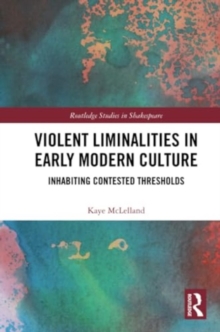
Radical Shakespeare : Politics and Stagecraft in the Early Career PDF
by Chris Fitter
Part of the Routledge Studies in Shakespeare series
Description
This book argues that Shakespeare was permanently preoccupied with the brutality, corruption, and ultimate groundlessness of the political order of his state, and that the impact of original Tudor censorship, supplemented by the relatively depoliticizing aesthetic traditions of later centuries, have together obscured the consistent subversiveness of his work. Traditionally, Shakespeare's political attitudes have been construed either as primarily conservative, or as essays in richly imaginative ambiguation, irreducible to settled viewpoints. Fitter contends that government censorship forced superficial acquiescence upon Shakespeare in establishment ideologies - monarchic, aristocratic and patriarchal - that were enunciated through rhetorical set pieces, but that Shakespeare the dramatist learned from Shakespeare the actor a variety of creative methods for sabotaging those perspectives in performance in the public theatres. Using historical contextualizations and recuperation of original performance values, the book argues that Shakespeare emerged as a radical writer not in middle age with King Lear and Coriolanus - plays whose radicalism is becoming widely recognized - but from his outset, with Henry VI and Taming of the Shrew. Recognizing Shakespeare's allusiveness to 1590s controversies and dissident thought, and recovering the subtextual politics of Shakespeare's distinctive stagecraft reveals populist, at times even radical meaning and a substantially new, and astonishingly interventionist, Shakespeare.
Information
-
Download - Immediately Available
- Format:PDF
- Pages:342 pages
- Publisher:Taylor & Francis
- Publication Date:03/07/2013
- Category:
- ISBN:9781136575839
Other Formats
- Paperback / softback from £45.25
- Hardback from £140.00
- EPUB from £38.06
Information
-
Download - Immediately Available
- Format:PDF
- Pages:342 pages
- Publisher:Taylor & Francis
- Publication Date:03/07/2013
- Category:
- ISBN:9781136575839










